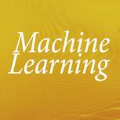For many decades, experimental solid mechanics has played a crucial role in characterizing and understanding the mechanical properties of natural and novel materials. Recent advances in machine learning (ML) provide new opportunities for the field, including experimental design, data analysis, uncertainty quantification, and inverse problems. As the number of papers published in recent years in this emerging field is exploding, it is timely to conduct a comprehensive and up-to-date review of recent ML applications in experimental solid mechanics. Here, we first provide an overview of common ML algorithms and terminologies that are pertinent to this review, with emphasis placed on physics-informed and physics-based ML methods. Then, we provide thorough coverage of recent ML applications in traditional and emerging areas of experimental mechanics, including fracture mechanics, biomechanics, nano- and micro-mechanics, architected materials, and 2D material. Finally, we highlight some current challenges of applying ML to multi-modality and multi-fidelity experimental datasets and propose several future research directions. This review aims to provide valuable insights into the use of ML methods as well as a variety of examples for researchers in solid mechanics to integrate into their experiments.
翻译:数十年来,实验固体力学在自然和新材料的机械特性的定性和理解方面发挥了关键作用。最近机器学习的进步为该领域提供了新的机会,包括实验设计、数据分析、不确定性量化和反向问题。近年来在这个新兴领域发表的论文数量正在爆炸,因此,对实验固体力学中最近的ML应用进行全面和最新的审查是及时的。在这里,我们首先概述了与本审查有关的通用ML算法和术语,重点是物理学和物理基础ML方法。然后,我们详尽地报道了最近在传统和新兴实验机械领域,包括断裂力、生物机械学、纳米和微型机械学、建筑材料和2D材料等领域的ML应用。最后,我们强调目前将ML应用于多种模式和多纤维实验性实验数据集的一些挑战,并提出一些未来的研究方向。本审查的目的是提供对ML方法的使用的宝贵见解,以及研究人员在固体力学实验中的各种例子。</s>



